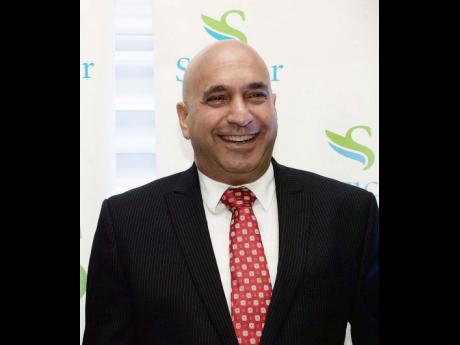Petrojam scandal triggers major policy changes - General manager steps down
Prime Minister Andrew Holness has given instructions for major policy changes to provide increased oversight of public bodies in the wake of a litany of breaches that occurred at the beleaguered state-run Petrojam.
At the same time, in a dramatic turn of events, the general manager, Floyd Grindley, has been separated from the company, bringing to four the number of casualties at Petrojam since reports surfaced about nepotism, cronyism and corruption.
Three local members of the board recently resigned at Petrojam. New arrangements will shortly be announced for the management leadership of the entity.
Holness announced that a strategic review of both the management and operations of Petrojam is to be conducted, as well as its long-term commercial viability and role in Jamaica.
The prime minister told his parliamentary colleagues that businessman Christopher Zacca has agreed to chair a team to assist the Government and board to determine the strategic direction of Petrojam.
In a statement to the House of Representatives yesterday, Holness said that after reviewing the report of the permanent secretary, who was asked to make a submission on the entity, the Cabinet has made significant proposals to strengthen oversight powers and governance controls of public bodies.
Holness said he has asked the minister of finance to craft proposals for amendments to the Public Bodies Management and Accountability Act (PBMA) in order to bring clarity to the accountability framework in public bodies.
The prime minister said that in his interview with the permanent secretary, it became clear that the officers of the energy division in the central ministry were not aware, or were made aware after the fact, of most of the instances of maladministration at Petrojam.
The prime minister admitted that Cabinet was satisfied that there were indications where the previous board might have departed from policy. He cited actions such as personally making travel arrangements as a breach of policy guidelines. The former chairman had made 26 trips.
A new board has since been appointed.
According to Holness, in light of great public concerns and the issues which have affected the staff at Petrojam, he has asked the new board to settle the industrial relations environment and ensure that the management of the company is efficient and effective. The prime minister has directed the board to return the refinery to full operations in the shortest possible time as a matter of urgency.
Another major assignment for the board is to examine the management systems, including accounting, administration, procurement, and human resource management, for obvious weakness and make the necessary changes both in systems and personnel to ensure the effective operations of the company in the short term.
The process of approval of travel by board members needs greater oversight, the PM noted. He said all travel of public officials, which include board members, must be recommended by the permanent secretary for the Cabinet secretary's approval.
Another weakness cited by Holness is that Cabinet, in appointing board members, was not always aware of the residential status of proposed members: "Approving board membership of persons who live overseas could implicitly impose a cost of travel on the public purse."
He said that the area of donations and corporate social responsibility was a glaring weakness at Petrojam. Also of concern was the issue of retainer contracts.
After careful consideration, Holness said that all sole-source retainer contracts will now require prior approval by Cabinet. Declarations of connected persons to the board or management must be included in all submission to Cabinet.
He said that the auditor general is to fast-track her report to be sent to Parliament on the Petrojam issue.
"This Government has nothing to hide. We are shielding no one and are not covering up anything."
Opposition Leader Dr Peter Phillips argued that if adequate control and direction was exercised by the then minister, Andrew Wheatley, the multiplicity of issues could not have arisen.
"We are not saying that the minister should be personally responsible, but he is accountable."

